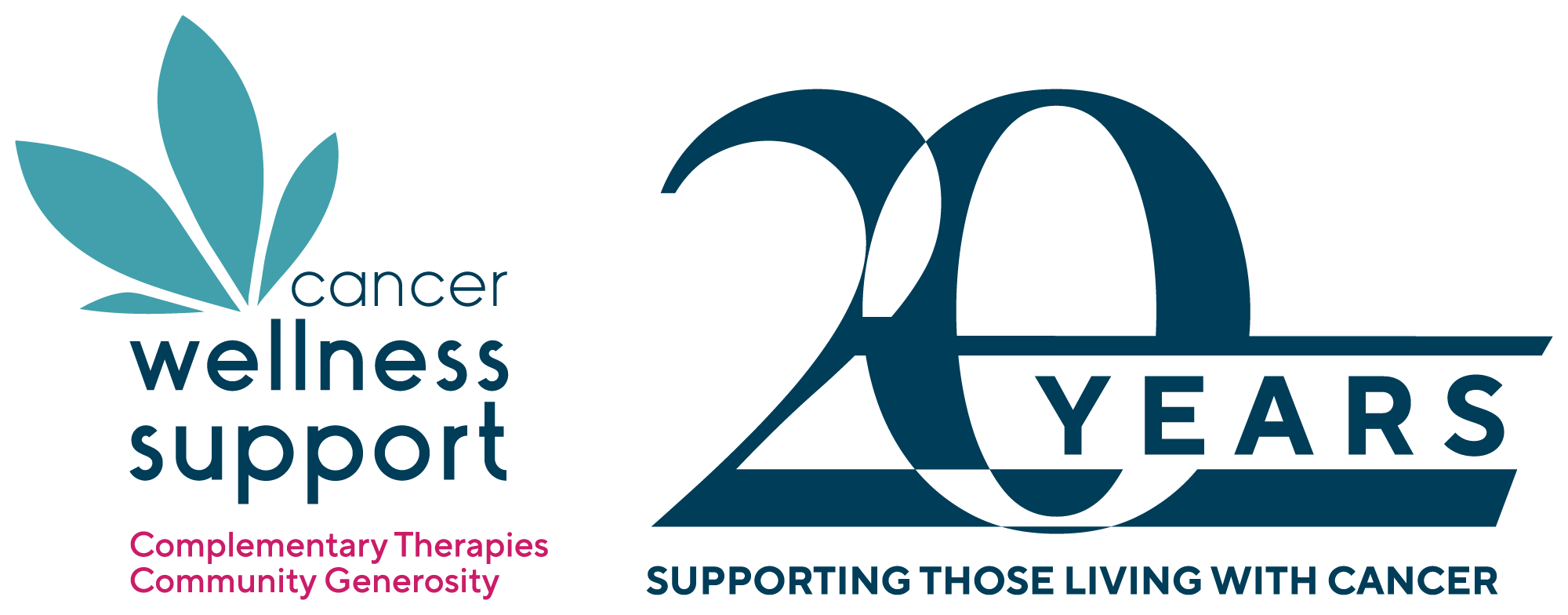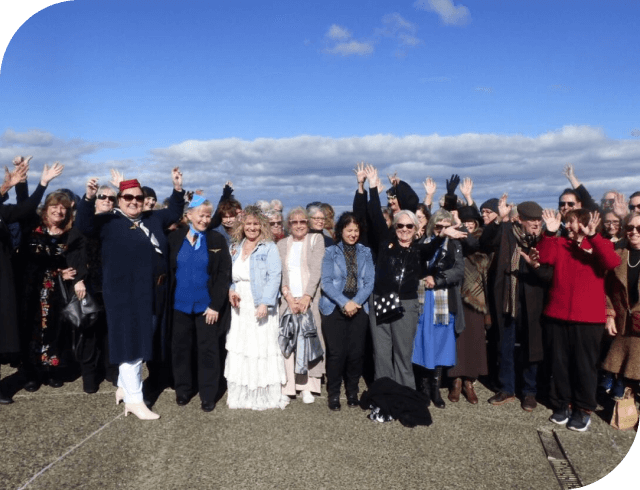
Wellness And Therapy Guides
Qigong
What is Qigong?
Qigong is a holistic practice from traditional Chinese medicine, focusing on balancing the body’s vital energy, known as Qi or Chi. Qigong is a system of health practices intended to prevent disease as well as restore wellness in those who are ill.
Combining gentle movements, breath control, and meditation, Qigong aims to promote health and wellbeing by harmonising the flow of Qi throughout the body.
Therapists perform slow, fluid movements with deep breathing to circulate Qi along meridian pathways. These exercises can be tailored to individual needs and abilities (limited to within the context of a group), and may be performed standing or sitting.
Visualisations and self-massage enhance relaxation and Qi flow.
Specialised movements combined with conscious breathing techniques help rewire neural pathways, allowing you to shift how you perceive and respond to both your inner thoughts and the world around you
Qigong is suitable for everybody, regardless of age, fitness, state of health or belief system or prior experience.
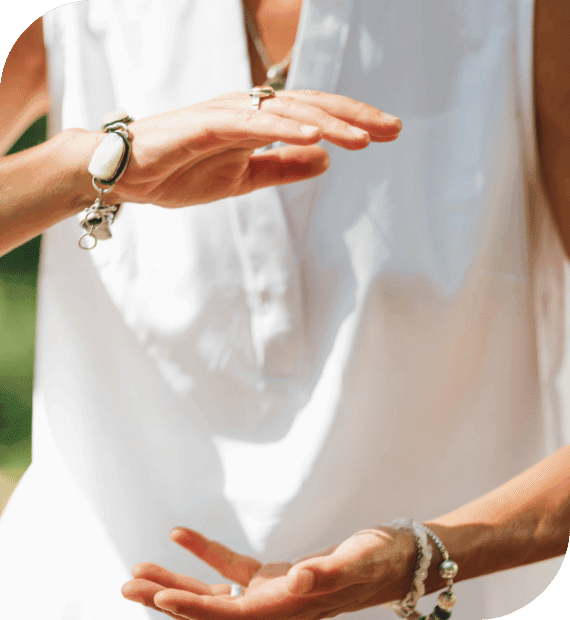
Qigong is a holistic practice from traditional Chinese medicine, focusing on balancing the body’s vital energy, known as Qi or Chi. Qigong is a system of health practices intended to prevent disease as well as restore wellness in those who are ill.
Combining gentle movements, breath control, and meditation, Qigong aims to promote health and wellbeing by harmonising the flow of Qi throughout the body.
Therapists perform slow, fluid movements with deep breathing to circulate Qi along meridian pathways. These exercises can be tailored to individual needs and abilities (limited to within the context of a group), and may be performed standing or sitting.
Visualisations and self-massage enhance relaxation and Qi flow.
Specialised movements combined with conscious breathing techniques help rewire neural pathways, allowing you to shift how you perceive and respond to both your inner thoughts and the world around you
Qigong is suitable for everybody, regardless of age, fitness, state of health or belief system or prior experience.
Benefits for People Living With Cancer
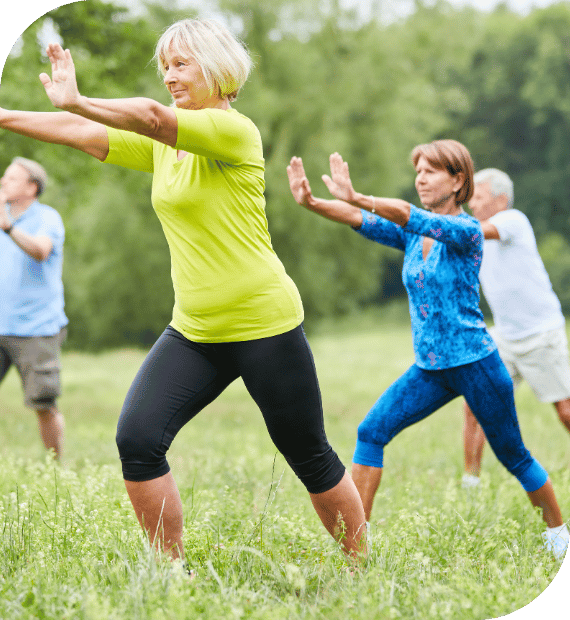
Qigong offers numerous potential benefits for people living with cancer.
Research suggests that practising Qigong may enhance immune function, improve quality of life, and reduce levels of stress hormones in cancer patients.
Qigong has also shown promise in alleviating symptoms such as pain, depression, and cancer-related fatigue.
Studies indicate that Qigong may also have a positive impact on physical and mental functioning, sleep quality, and inflammation levels in cancer patients.
Additionally, Qigong can reduce anxiety and balance the autonomic nervous system, promoting a sense of calm and wellbeing.
Benefits for People Living With Cancer
Qigong offers numerous potential benefits for people living with cancer.
Research suggests that practising Qigong may enhance immune function, improve quality of life, and reduce levels of stress hormones in cancer patients.
Qigong has also shown promise in alleviating symptoms such as pain, depression, and cancer-related fatigue.
Studies indicate that Qigong may also have a positive impact on physical and mental functioning, sleep quality, and inflammation levels in cancer patients.
Additionally, Qigong can reduce anxiety and balance the autonomic nervous system, promoting a sense of calm and wellbeing.
Benefits for Carers
Qigong can provide stress relief, relaxation, and release tension and anxiety, and cultivate inner peace.
It can improve physical health, boost energy levels, and foster emotional resilience through recharging and nurturing your own health.
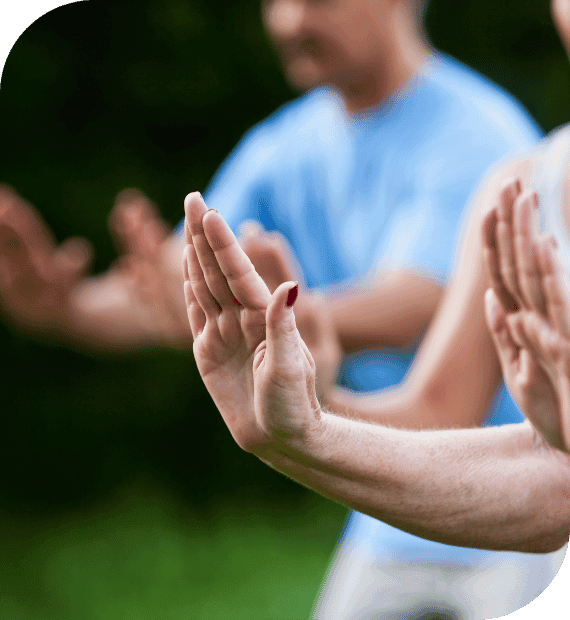
Qigong can provide stress relief, relaxation, and release tension and anxiety, and cultivate inner peace.
It can improve physical health, boost energy levels, and foster emotional resilience through recharging and nurturing your own health.
What to Expect from Your Session

For a Qigong session, it is recommended to wear loose comfortable clothing and shoes. Alternatively, you can go barefoot.
Starting with gentle warm ups, your therapist will lead you through a sequence of gentle flowing movements, focusing on posture, breathing and relaxation. This is then followed by a short guided meditation, either sitting or lying.
You’ll be guided to tune into your internal energy while gentle hand movements help balance Qi flow.
Sessions are deeply relaxing.
What to Expect from Your Session
For a Qigong session, it is recommended to wear loose comfortable clothing and shoes. Alternatively, you can go barefoot.
Starting with gentle warm ups, your therapist will then lead you through a sequence of gentle flowing movements, focusing on posture, breathing and relaxation. This is then followed by a short guided meditation, either sitting or lying.
You’ll be guided to tune into your internal energy while gentle hand movements help balance Qi flow.
Sessions are deeply relaxing.
References
- Qigong | wtqa.org.au
- What is Qigong? | National Qigong Association
- What is Qigong? | healthqigong.com.au
- Health benefits of qigong or tai chi for cancer patients | Complementary Therapies in Medicine
- Qigong improves quality of life in women undergoing radiotherapy for breast cancer | Cancer
- Effect of medical Qigong on cognitive function, quality of life, and a biomarker of inflammation in cancer patients | Supportive Care in Cancer
- External Qigong for Pain Conditions | The Journal of Pain
- Acute Physiological and Psychological Effects of Qigong Exercise in Older Practitioners | Evidence-Based Complementary and Alternative Medicine
- Can Qigong Support Recovery From Breast Cancer Surgery? | SoulAdvisor Foundation
